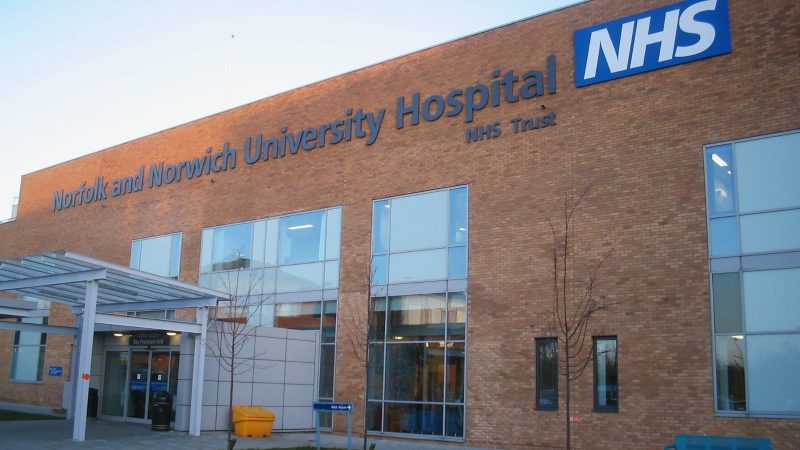Green politics save lives.

NHS workers know that we need more than a ‘Green Industrial Revolution’ that is neither green nor revolutionary. What’s killing the planet is also killing people and damaging health. Yet the government has no plans to an end to North Sea oil extraction, or plans for a new coal mine in Cumbria – projects that are incompatible with a green transformation, and human life. This is why health workers like myself are demanding a Green New Deal including a transition to a ZERO-carbon economy by 2030!
In November 2020, Boris Johnson announced a Green industrial revolution – a 10-point plan to “make our nation cleaner, greener, and more beautiful … delivering net zero emissions in a way that creates jobs and allows us to carry on living our lives.”But the policy commitments contained within that plan would only close 55% of the gap to meeting upcoming carbon budgets, and even those modest gains depend on £1 billion investment in the still-unproven at scale carbon capture and storage – a figleaf for continued commitments to fossil fuel extraction and combustion.
A month later, the UK revealed its latest emissions reductions targets – aiming for a 68% reduction in emissions by 2030. But once again, policy commitments appear insufficient to meet even these goals – insufficient as they are to meet the scale of action required by the climate emergency, or the UK’s historical responsibility for causing it.
The March budget failed to deliver on support for green infrastructure, and failed to limit investment in new carbon-intensive industry. Though Alok Sharma MP – president of the forthcoming COP26 climate negotiations to be held in Glasgow later this year – speaks of “powering past coal”, the government has still to settle the fate of a proposed new coal mine in Cumbria that would commit to a further 8.4MtCO2e of emissions annually.
The latest proposal that exposes the lies of the government’s green rhetoric comes from the ‘North Sea transition deal’ – a plan to manage a transition away from oil and gas extraction in the North Sea, which, crucially, includes no proposal for ending oil and gas extraction. New oil and gas exploration are flatly inconsistent with global emissions reductions goals: a third of already-listed oil reserves, and half of gas reserves, must not be burnt if we are to keep global heating even within the 2°C target that already poses widespread threats to human health and wellbeing.
In December 2020, a coroner ruled that air pollution “made a material contribution” to the death of nine-year old Ella Adoo-Kissi-Debrah. Though her tragic case represents the first time a death certificate has recorded air pollution as a cause of death in the UK, there are thousands more stories like hers – exposure to air pollution generated by human activities in the UK causes an estimated 28,000-36,000 deaths annually.
This pollution is overwhelmingly generated by the combustion of fossil fuels. And these deaths are disproportionately concentrated amongst poorer and marginalised communities, despite those communities contributing least to generating the problem.
Health crises like this one require more than empty rhetoric – they motivate the public health case for a Green New Deal, as set out in the new report written by health workers and published by Medact. The Green New Deal provides a radical but realistic policy platform for rapid decarbonisation by 2030 while ensuring a just transition that creates secure, well-paid, green jobs for workers, and addresses the root causes of morbidity and mortality.
An entirely decarbonised energy economy in the UK could prevent nearly 14,000 deaths annually by 2030[1]. Building communities that support free public transport, walking and cycling over privatised motor transport could save the NHS £17 billion in 20 years. Helping people out of fuel poverty by turning existing housing stock into climate-smart, well-insulated, energy-generating homes would pay for itself in just seven years through reductions in winter cold-related illness and energy savings – and save lives.
And it doesn’t stop at clean energy and clean air. The radical transformation of the economy a Green New Deal calls for would confer untold health benefits – providing decent housing for all, ensuring access to green space and guaranteeing everyone’s right to nutritious food would address the other major public health crises of our times.
The Green New Deal is an essential public health intervention. It is lifesaving preventative medicine. And doctors like myself, as well as nurses and other people who work in health, have a role to play in pushing for the institutional changes needed at local, national and international levels to save lives and the planet.
Alistair Wardrope is a doctor at Sheffield Teaching Hospitals NHS Foundation Trust.
[1] Jacobson MZ, Delucchi MA, Cameron MA, et al. Impacts of Green New Deal Energy Plans on Grid Stability, Costs, Jobs, Health, and Climate in 143 Countries. One Earth. 2019;1(4):449-463. doi:10.1016/j.oneear.2019.12.003
To reach hundreds of thousands of new readers we need to grow our donor base substantially.
That's why in 2024, we are seeking to generate 150 additional regular donors to support Left Foot Forward's work.
We still need another 117 people to donate to hit the target. You can help. Donate today.



